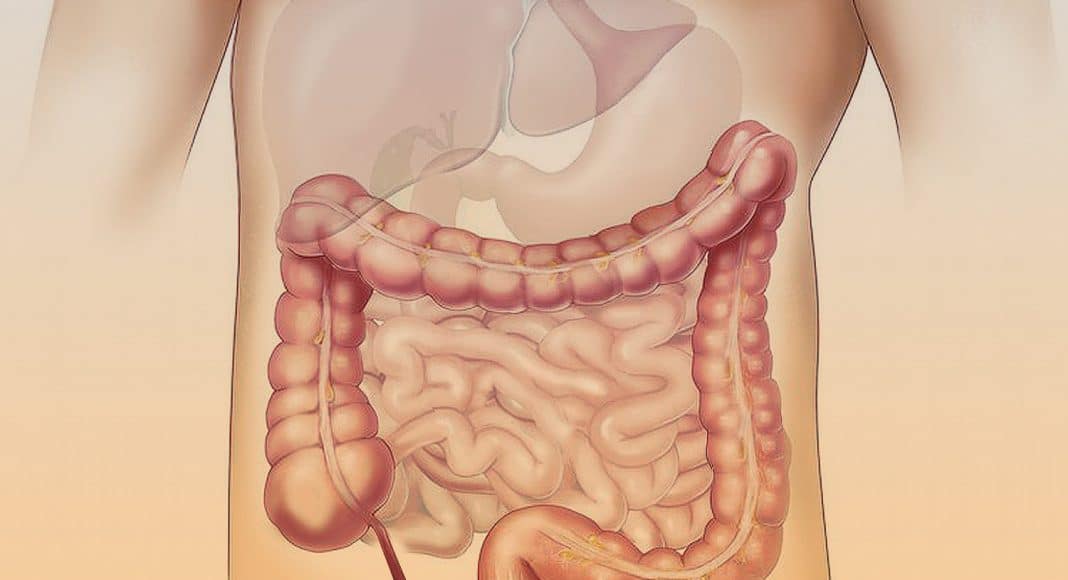Crohn’s disease is a chronic digestive tract disorder that affects more than half a million Americans. It was identified in 1932 by a trio of medical researchers—one of whom, Dr. Burrill B. Crohn, evidently pulled the shortest straw and received the honor of having his surname become forevermore a byword for bloody stool and abdominal cramping.
-
Related Story: Unconventional Medicine: Cannabis Suppositories
Crohn’s is caused by a constellation of incompletely understood genetic, environmental, and immunological factors, but the effect is to rouse the body’s immune defenses into a xenophobic rage against the billions of microorganisms that otherwise peaceably populate our guts. The chronic inflammation produced by this ongoing immunological false alarm can lead to painful thickening of the intestines and ulceration (also painful). Other symptoms include nausea, vomiting, diarrhea, constipation, “urgent need,” and—not surprisingly—fatigue.
There is no cure for Crohn’s, but there are treatments—including corticosteroids, which work by depressing the immune system, not just along the digestive track, but everywhere. Which is not a good longterm policy. Steroids can also elevate your weight, eye pressure, blood pressure, and blood sugar level. So Crohn’s sufferers can face a Sophie’s choice between rectal bleeding and adult-onset diabetes.
On other hand, there is ample experimental evidence that cannabis possesses anti-inflammatory properties, which led researchers at Israel’s Meir Medical Center to pursue the first placebo-controlled study to test the effects of cannabis on Crohn’s disease. In the words of the report, which was published in 2013, the results were “impressive”!!! (You need the three exclamation points to properly convey force of this term in a medical context.)
-
Related Story: Marijuana-Infused Gum Is The Next Big Thing
A group of eleven subjects with Crohn’s that had resisted conventional treatment smoked two joints a day for eight weeks. They were compared against a group of 10 who smoked THC-free bud (sad trombone sound effect). Five of the 11 experienced full remission, and a whopping ten reported improvement. (That’s versus 1 and 4, respectively, in the control group.) Moreover, team THC also reported “significant increase in quality of life,” including better sleep and appetite and excluding any unpleasant side effects. In fact, the pot even helped wean three subjects from steroid dependency.
Now a therapeutic splash of cold water: Cannabis was not a cure. It worked only on symptoms, and they returned after two weeks of smokelessness. Also, because of the small trial size, the remission rate was determined to be statistically negligible. Nonetheless the numbers were promising enough to generate enthusiasm within the medical community and to warrant further research.


